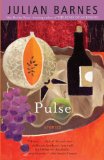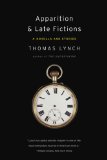Summary | Excerpt | Reviews | Beyond the book | Read-Alikes | Genres & Themes | Author Bio

John Updike’s first collection of new short fiction since the year 2000, My Father’s Tears finds the author in a valedictory mood as he mingles narratives of his native Pennsylvania with stories of New England suburbia and of foreign travel.
“Personal Archaeology” considers life as a sequence of half-buried layers, and “The Full Glass” distills a lifetime’s happiness into one brimming moment of an old man’s bedtime routine. High-school class reunions, in “The Walk with Elizanne” and “The Road Home,” restore their hero to youth’s commonwealth where, as the narrator of the title story confides, “the self I value is stored, however infrequently I check on its condition.” Exotic locales encountered in the journeys of adulthood include Morocco, Florida, Spain, Italy, and India. The territory of childhood, with its fundamental, formative mysteries, is explored in “The Guardians,” “The Laughter of the Gods,” and “Kinderszenen.” Love’s fumblings among the bourgeoisie yield the tart comedy of “Free,” “Delicate Wives,” “The Apparition,” and “Outage.”
In sum, American experience from the Depression to the aftermath of 9/11 finds reflection in these glittering pieces of observation, remembrance, and imagination.
Morocco
The seacoast road went smoothly up and down, but compared with an American highway it was eerily empty. Other cars appeared menacing on it, approaching like bullets, straddling the center strip. Along the roadside, alone in all that sunswept space, little girls in multicolored Berber costume held out bouquets of flowers—violets? poppies?—which we were afraid to stop and accept. What were we afraid of? A trap. Bandits. Undertipping, or overtipping. Not knowing enough French, and no Arabic or Berber. “Don’t stop, Daddy, don’t!” was the cry; and it was true, when we did stop at markets, interested persons out of the local landscape would gather about our rented Renault, peering in and offering unintelligible invitations.
We were an American family living in England in 1969 and had come to Morocco naïvely thinking it would be, in April, as absolute an escape to the sun as a trip to the Caribbean from the Eastern United States would be at the ...
After reading the first story in this collection, I remembered something Martin Amis wrote about Updike: "having read him once, you admit to yourself, almost with a sigh that you will have to read everything he writes." Updike chronicles the lives of widowers, divorcees, adulterers, fathers with lyrical accuracy and savory insight... his sentences are acrobatic; they’re deft and complicated, flowery but shockingly lucid...continued
Full Review
(759 words)
This review is available to non-members for a limited time. For full access,
become a member today.
(Reviewed by Natasha Vargas-Cooper).
"I'd like to offer assurances that your reviewer is not one of these spleen-venting, spittle-spattering Updike-haters one encounters among literary readers under 40. The fact is that I am probably classifiable as one of very few actual sub-40 Updike fans."
This quote comes from an essay by David Foster Wallace, the upstart author of the late 90's, published in The New York Observer in 1997. Though Wallace's essay on Updike is not "spleen-venting" it is absolutely scalding and is the sacred document of the Anti-Updike faction on college campuses. It's considered the rallying cry that spurred the literary backlash against The Great White Male. According to Wallace, Updike was the chronicler and the voice of "the most self-absorbed ...This "beyond the book" feature is available to non-members for a limited time. Join today for full access.

If you liked My Father's Tears, try these:

by Julian Barnes
Published 2012
After the best-selling Arthur & George and Nothing to Be Frightened Of, Julian Barnes returns with fourteen stories about longing and loss, friendship and love, whose mysterious natures he examines with his trademark wit and observant eye.

by Thomas Lynch
Published 2011
Heart-rending stories of life and death: a debut fiction collection by the award-winning author of The Undertaking.




To make a library it takes two volumes and a fire. Two volumes and a fire, and interest. The interest alone will ...
Click Here to find out who said this, as well as discovering other famous literary quotes!